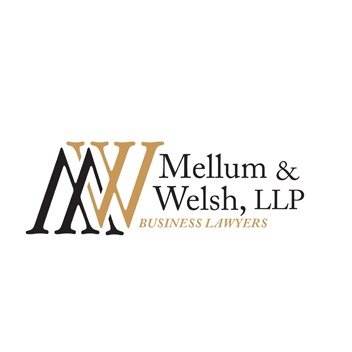Best Trademark Lawyers in Minnesota City
Share your needs with us, get contacted by law firms.
Free. Takes 2 min.
List of the best lawyers in Minnesota City, United States
About Trademark Law in Minnesota City, United States
Trademark law in Minnesota City, U.S., falls under both state and federal jurisdiction, aiming to protect the trademarks associated with businesses, products, and services. A trademark refers to any symbol, word, name, or design used or intended to be used to distinguish goods and services from those of others. Trademark law protects a business's brand identity, avoiding confusion in the marketplace.
Why You May Need a Lawyer
Legal advice may be required in various situations related to trademark law. You may need a lawyer when filing a trademark application, if you believe someone is infringing on your trademark, if you're accused of trademark infringement, or if you're entering an agreement involving use of your trademark. Also, a lawyer can help if your trademark application has been denied by the United States Patent and Trademark Office (USPTO) or you're unsure about trademark-related aspects in foreign markets.
Local Laws Overview
Minnesota’s trademark law is included in Minnesota Statutes, sections 333.18 through 333.31. Notably, the law states that a trade name, trademark, service mark or associated intellectual property is protected if it is used in Minnesota. Registered trademarks in Minnesota receive a 10-year term of protection, with an option to renew. Nationally, trademarks need to be registered with the USPTO, which is governed by the Lanham Act.
Frequently Asked Questions
1. How can I register a trademark in Minnesota City?
First, you need to ensure your trademark is unique and different from existing trademarks in your industry. Then, you can file an application for registration with the Office of the Minnesota Secretary of State or the United States Patent and Trademark Office.
2. How long does a trademark last in Minnesota?
In Minnesota, a registered trademark lasts for ten years. You can renew the trademark indefinitely, provided the mark is still in use.
3. What can I do if someone is infriting on my trademark?
If you believe someone is infringing upon your registered trademark, it is important to consult with a trademark attorney. They can guide you through the process of sending a cease and desist letter or filing a lawsuit if necessary.
4. Can I sell or transfer my trademark rights?
Yes, you can legally transfer your rights to a trademark through an assignment or licensing agreement. This process should be overseen by a trademark lawyer to ensure it is properly performed.
5. What is the difference between a trademark and a service mark?
A trademark applies to goods, such as products or items, while a service mark relates to services offered by a business, like repairs or maintenance. Essentially, both offer a source-identification function, but they pertain to different aspects of a business.
Additional Resources
Here are some helpful resources for further trademark law assistance:
- The United States Patent and Trademark Office (USPTO) offers broad resources for understanding and applying for trademarks.
- The Office of the Minnesota Secretary of State has a section dedicated to trademarks and service marks.
- Minnesota's official state website provides access to legislative and legal resources.
Next Steps
If you need legal assistance related to trademark law in Minnesota City, find an attorney who specializes in intellectual property and particularly in trademark law. They can provide you with tailored advice according to your situation. It's advisable to conduct a thorough research or seek references to select an attorney with a successful track record and robust understanding of Minnesota's laws and federal trademarks.
Lawzana helps you find the best lawyers and law firms in Minnesota City through a curated and pre-screened list of qualified legal professionals. Our platform offers rankings and detailed profiles of attorneys and law firms, allowing you to compare based on practice areas, including Trademark, experience, and client feedback.
Each profile includes a description of the firm's areas of practice, client reviews, team members and partners, year of establishment, spoken languages, office locations, contact information, social media presence, and any published articles or resources. Most firms on our platform speak English and are experienced in both local and international legal matters.
Get a quote from top-rated law firms in Minnesota City, United States — quickly, securely, and without unnecessary hassle.
Disclaimer:
The information provided on this page is for general informational purposes only and does not constitute legal advice. While we strive to ensure the accuracy and relevance of the content, legal information may change over time, and interpretations of the law can vary. You should always consult with a qualified legal professional for advice specific to your situation.
We disclaim all liability for actions taken or not taken based on the content of this page. If you believe any information is incorrect or outdated, please contact us, and we will review and update it where appropriate.








